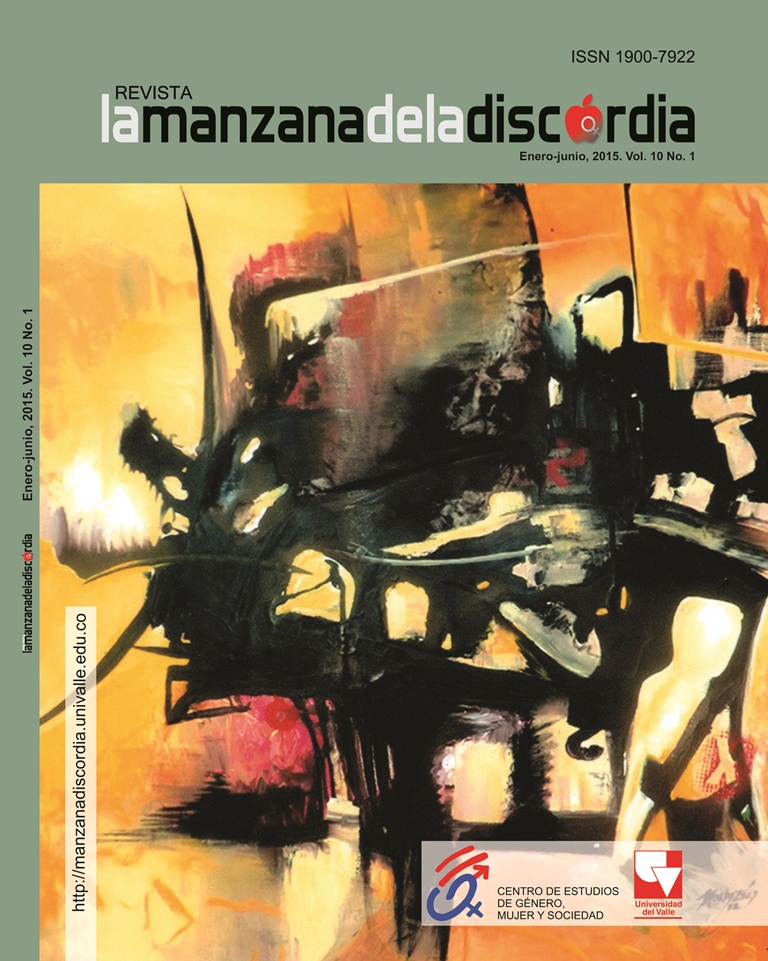Poéticas de la distancia en la literatura argentina: ficciones maternas en obras de Sylvia Molloy y de Reina Roffé
Contenido principal del artículo
Resumen: En este trabajo, analizamos y valoramos la
emergencia de ciertas “poéticas de la distancia” en textos
literarios que constituyen fábulas o ficciones maternas,
que atraviesan la literatura argentina con operaciones
discursivas sobre el género, el recuerdo y la memoria
desde una lengua- Madre. Llamamos “ficciones maternas”
a aquellos relatos que cuestionan algunos discursos
fundantes y canónicos como el de la maternidad y la sexualidad.
En esas ficciones, la voz de los hijos construye
un discurso sobre el de las voces de las madres, en tanto
figura arquetípica del sistema patriarcal. En ese marco,
leeremos la nouvelle “La madre de Mary Shelley” (2011),
de Reina Roffé y la novela El común olvido de la argentina
Silvia Molloy (2002/2011), ambas escritoras argentinas,
como relatos en los que las madres son representadas en
una tensión entre la ausencia, la exclusión y el enigma
mediadas por las narraciones de sus hijos. Esas voces
desplegarán una lengua- Madre, entendida como práctica
política e ideológica, que no sólo es la que origina otras
lenguas sino que, desde lo fragmentario y disperso, permite
pensar “cómo se llega a tener madre, tener patria y tener
lengua”***. Por eso, las fábulas maternas nos permiten
reflexionar qué ocurre con las operaciones discursivas
que los escritores hacen con su propia lengua, cuando
escriben desde otros espacios simbólicos.
Palabras clave: ficciones maternas, literatura argentina,
Sylvia Molloy, Reina Roffé
Poetics of Distance in Argentinian Literature:
Maternal Fictions in Works by Sylvia Molloy and
Reina Roffé
Abstract: This paper analyzes and values the emergence
of a certain “poetic distance” in literary texts that
constitute maternal fables or fictions, sowing throughout
Argentinian literature discursive operations on gender,
memory and a Mother- language. We call “maternal
fictions” those stories that question some foundational
and canonical speeches like motherhood and sexuality. In
this fiction, the voice of the child constructs a discourse
on top of the voices of mothers as archetypal figures of
the patriarchal system. In this context, we will read the
nouvelle “Mary Shelley’s Mother” (2011), by Reina Roffé,
and the novel The Common Neglect by Argentinian Silvia
Molloy (2002/2011), both Argentinian writers, as stories in
which mothers are represented in a tension interspersing
absence, exclusion and enigma in narratives by their children.
Those voices deploy a Mother- language, defined as
a political and ideological practice, which is not only the
origin of other languages but which, on the basis of fragmentation
and sparseness, suggests “how you get to have
a mother tongue, a homeland and a language.” Therefore,
maternal fables allow us to reflect on what happens to the
discursive operations by writers with their own language,
when writing from other symbolic spaces.
Keywords: maternal fictions, Argentinian literature,
Sylvia Molloy, Reina Roffé

